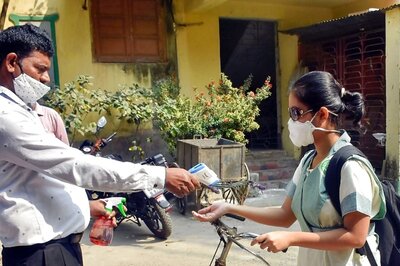
views
New Delhi: Having apparently learnt a lesson the hard way after the doping scandal, the Sports Authority of India (SAI), is mulling on having a regulatory body that will closely monitor athletes whose performance graph improves radically in a short span of time for possible use of performance enhancing drugs.
"It is a cause of concern. From now on, we should be more vigilant and definitely keep a watch on those athletes whose performance level improves a lot in a short span of time," SAI Director General, Desh Deepak Verma, told reporters without taking names of such athletes.
Double Asian Games gold medallist Ashwini Akkunji saw her performance in 400m hurdles improving drastically after a stint in Ukraine last year before the Commonwealth Games.
Legendary athlete PT Usha had voiced her concerns about Ashwini's sudden improvement in performance but no one bothered to pay heed to her opinion then.
Verma, however, sidestepped the issue about SAI and AFI's fetish for appointing coaches from the erstwhile Soviet block countries like Belarus and Ukraine which have long been known as the hub for "systematic doping and masking".
"It's unfair to blame a particular country for this. What we can do from now on is to thoroughly check the credentials of coaches who are being appointed. If we find that a certain coach has his wards regularly being caught for doping, then we won't go ahead with the appointment," he said.
Meanwhile, National Anti-Doping Agency Director General Rahul Bhatnagar said that his organisation is planning to have guide books, which can prevent athletes from doping, published in regional languages.
"We already have literature on anti-doping measures in English and Hindi. But we understand the need for all the athletes to be equally aware about the consequences, so we are planning to publish the literature in some of the regional languages. It will help a larger number of athletes to go through the material," Bhatnagar told PTI today.
"Also we are planning to improve the number of counselling sessions," he added.




















Comments
0 comment